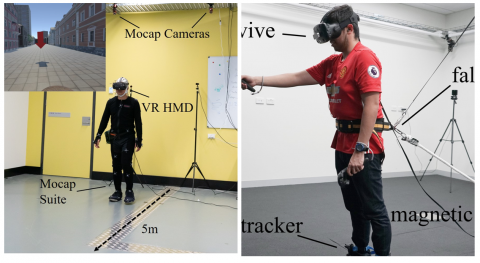Detection and Prevention of Accidents in Virtual Reality by Integrating a Brain-Computer Interface.
Very recently, Virtual Reality became a consumer-friendly technology that more and more people are using to consume content. Never the less, the more people adopt this technology, the more we realize there is a concerning danger of people suffering accidents. From the unexpected loss of balance to virtual reality sickness, these are serious issues that must be solved if we want this technology to reach more and more consumers.
This research intends to use an Electroencephalogram (EEG) in combination with kinematic measurements from a user's body to understand the biomarkers behind loss of balance or virtual reality sickness. The purpose of this research is to be able to identify when a user is about to suffer an accident, properly alert the user, and modify the content displayed so this accident gets prevented in future sessions.
Researcher:

